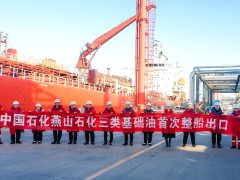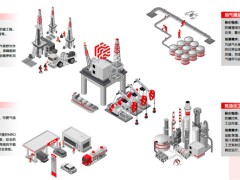据7月6日CNBC报道,沙特阿拉伯和阿拉伯联合酋长国之间的冲突,让人们对这个能源联盟的未来产生了质疑,欧佩克+陷入危机。
上周的会议,出人意料地未能就石油生产政策达成一致,欧佩克+突然放弃了周一重新召开会议的计划,并且,该组织没有设定恢复谈判的新日期。这意味着,还没有就7月之后可能增加原油产量的决定达成一致。在全球燃料需求从新冠肺炎疫情中复苏之际,石油市场处于不稳定状态。
加拿大皇家银行资本市场(RBC Capital Markets)全球大宗商品策略主管Helima Croft在一份研究报告中称:“欧佩克+遭遇了,自去年沙特阿拉伯和俄罗斯之间注定失败的价格战以来,最严重的危机。据报道,幕后谈判仍在继续,但未来几天,对阿联酋将继续留在欧佩克的质疑,可能会更多。阿联酋和沙特的争端似乎不仅仅是关于石油政策,阿布扎比似乎有意走出沙特阿拉伯的阴影,在全球事务中规划自己的道路。”
由中东原油生产国主导的欧佩克+同意在2020年实施大规模原油减产,以支撑油价,当时因新冠肺炎疫情,导致了燃料需求收到了历史性的冲击。
在阿联酋的盟友沙特阿拉伯的领导下,欧佩克+每月举行一次会议,以决定生产政策。
欧佩克联盟的团结出现消散危机
上周五,欧佩克+就一项从8月开始,以每月40万桶/日的方式增加石油产量,至年底达到增产约200万桶/日的提议进行了投票。该组织还提议将剩余的减产延长至2022年底。然而,阿联酋拒绝了该计划,该国希望提高配额基准,以增加国内产量。
PVM oil Associates的石油分析师Tamas Varga在一份研究报告中称,"就目前的情况来看,欧佩克+没有达成任何协议,今年剩余时间内的产量将维持在7月水平。此次会议的结果将改写近期,甚至可能是未来长期的供需格局。”
阿联酋和沙特阿拉伯之间罕见的公开对峙,促使两国能源部长在周末进行媒体闪电战,阐述各自的立场。
阿联酋能源和基础设施部长Suhail Al Mazrouei周日表示:“对我们来说,这不是一笔好交易。虽然我们愿意支持短期内增加石油供应,但希望在2022年前获得更优惠的条款。”
据路透社报道,沙特能源部长阿卜杜勒-阿齐兹·本·萨勒曼周日对阿拉伯电视台(Al Arabiya)表示,为了在周一达成协议,他呼吁彼此“妥协和理性”。
另外,据报道,一名白宫发言人周一表示,美国政府正在推动“妥协解决方案”。美国不是欧佩克的成员国,但考虑到这些谈判对明年原油市场的潜在影响,美国一直在密切关注最新一轮谈判。
在回应周一欧佩克+会议未达成协议而延期的消息时,Again Capital创始合伙人约翰•基尔达夫(John Kilduff)表示:“欧佩克的团结今天瓦解了。疫情使它们团结在一起,而现在它们正在分裂。阿联酋坚持要提高底线,希望能够获得更多生产配额。现在有趣的是,谁会倒下。阿联酋可能是倒下的‘第一张多米诺骨牌’。”
石油价格攀升至多年来的最高点
油价攀升的消息进一步推高了油价。国际基准布伦特原油期货价格周二早盘报每桶77.34美元,当日上涨0.2%,美国西德克萨斯中质原油期货价格报每桶76.36美元,上涨约1.6%。
WTI原油价格一度达到76.98美元,这是2014年11月以来的最高价格。今年上半年,受新冠肺炎疫苗的推出、封锁措施的逐步放松和欧佩克+的大规模减产的支持影响,油价上涨了45%以上。
Capital Economics助理大宗商品经济学家Samuel Burman表示,欧佩克产油国下个月可能将石油产量提高到超过配额的水平,因成员国“试图利用”油价的上涨。
他补充道:“除了阿联酋和沙特阿拉伯之间的出现分歧之外,阿布扎比可能对俄罗斯没有遵守欧佩克的产量配额感到“有些恼火”。
Burman表示:“非欧佩克成员国俄罗斯根本没有采取任何补偿性减产措施,目前日产量过剩约10万桶。我们认为,这场涉及阿联酋的争端,增加了整个协议破裂的可能性,这显然将对我们的近期价格预测带来下行风险。”
王佳晶 摘译自 CNBC
原文如下:
Is this the end of OPEC? How Saudi Arabia and UAE infighting threatens the future of the oil alliance
Oil producer group OPEC has been plunged into crisis, with bitter infighting between Saudi Arabia and the United Arab Emirates raising questions about the future of the energy alliance.
OPEC and non-OPEC partners, a group of some of the world’s most powerful oil producers, abruptly abandoned plans to reconvene on Monday after last week’s meetings unexpectedly failed to broker a deal on oil production policy. The group did not set a new date to resume talks.
It means no agreement has been reached on a possible increase in crude production beyond the end of July, leaving oil markets in a state of limbo just as global fuel demand recovers from the ongoing coronavirus pandemic.
“OPEC+ has been thrown its most serious crisis since last year’s ill-fated price war between Saudi Arabia and Russia,” Helima Croft, head of global commodity strategy at RBC Capital Markets, said in a research note.
“Back-channel talks reportedly are continuing, but questions about UAE’s commitment to remaining in OPEC will likely grow in the coming days.”
The UAE-Saudi dispute appeared to be about more than oil policy, Croft said, with Abu Dhabi “seemingly intent on stepping outside Saudi Arabia’s shadow and charting its own course in global affairs.”
OPEC+, which is dominated by Middle East crude producers, agreed to implement massive crude production cuts in 2020 in an effort to support oil prices when the coronavirus pandemic coincided with a historic fuel demand shock.
Led by Saudi Arabia, a close ally of the UAE, OPEC+ has met monthly to decide on production policy.
OPEC solidarity ‘dissolved’
The disarray comes after OPEC+ on Friday voted on a proposal to increase oil production by roughly 2 million barrels per day between August and the end of the year in 400,000 barrels per day monthly installments. It also proposed to extend the remaining output cuts to the end of 2022.
The plans were rejected by the UAE, however, which wants a higher baseline to its quota to allow for more domestic production.
“No agreement was reached and as we stand now the OPEC+ alliance, if it is still the right word to describe the group, will produce at the July level for the rest of the year,” Tamas Varga, oil analyst at PVM Oil Associates, said in a research note.
“The [non-] outcome of the meeting re-writes the supply-demand landscape for the near and potentially for the distant future,” he added.
The rare public stand-off between the UAE and Saudi Arabia saw energy ministers from both countries engaging in a media blitz over the weekend to outline their respective positions.
“For us, it wasn’t a good deal,” UAE Minister of Energy and Infrastructure Suhail Al Mazrouei told CNBC’s Hadley Gamble on Sunday. He added that while the country was willing to support a short-term increase in oil supply, it wants better terms through 2022.
Speaking to the Saudi-owned Al Arabiya television channel on Sunday, Saudi Arabia’s Energy Minister Abdulaziz bin Salman called for “compromise and rationality” in order to reach a deal on Monday, Reuters reported.
Separately, a White House spokesperson reportedly said on Monday that President Joe Biden’s administration was pushing for a “compromise solution.” The U.S. is not a member of OPEC (which stands for the Organization of Petroleum Exporting Countries) but it has been closely monitoring the latest round of talks given their potential impact on crude markets into next year.
Responding to the news that the OPEC+ meeting had been adjourned without a deal on Monday, John Kilduff, a founding partner at Again Capital, said: “The Opec solidarity dissolved today.”
“The pandemic held them together and now the post pandemic is breaking them apart. The UAE is sticking to their guns on wanting their baseline raised. They want to be able to produce more,” he told CNBC via email.
“Now the fun starts as to who breaks away,” Kilduff said, noting the UAE could be the “first domino” to fall.
OPEC was not immediately available to respond to a request for comment when contacted by CNBC on Tuesday.
Oil prices climb to multi-year highs
The news pushed oil prices even higher. International benchmark Brent crude futures traded at $77.34 a barrel on Tuesday morning, up 0.2% for the session, while U.S. West Texas Intermediate futures stood at $76.36, around 1.6% higher.
At one point, WTI crude hit as high as $76.98, which was the highest price since November 2014.
Oil prices rallied more than 45% in the first half of the year, supported by the rollout of Covid-19 vaccines, a gradual easing of lockdown measures and massive production cuts from OPEC+.
Samuel Burman, assistant commodities economist at Capital Economics, said OPEC producers were likely to increase oil production above quota next month as member states “seek to take advantage” of higher oil prices.
In addition to a rift between the UAE and Saudi Arabia, he said Abu Dhabi was probably “somewhat irritated” that Russia hadn’t been complying with OPEC’s production quotas.
Burman said non-OPEC leader Russia hadn’t introduced any compensatory cuts at all and was currently overproducing by around 100,000 barrels per day. “We think that this spat involving the UAE increases the chances that the entire agreement falls apart which would clearly pose a downside risk to our near-term price forecasts.”
免责声明:本网转载自其它媒体的文章,目的在于弘扬石化精神,传递更多石化信息,并不代表本网赞同其观点和对其真实性负责,在此我们谨向原作者和原媒体致以敬意。如果您认为本站文章侵犯了您的版权,请与我们联系,我们将第一时间删除。







